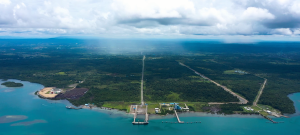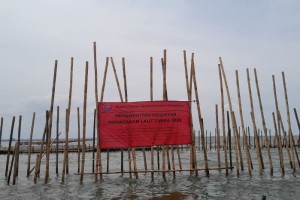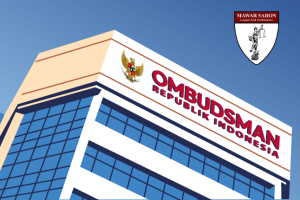Meikarta mega project offers a rosy picture but consumers get a bleak future
Lippo Group mega project Meikarta in Cikarang, Bekasi regency, has been involved in legal battle with consumers due to the company's failure in delivering the property on time and the latter's alleged defamation.
The modern city project, which construction kicked off on August 17, 2017, has been stalled because of corruption cases involving high-ranked officials at the developer and Bekasi regency. It also faced criticism for environmental damage.
The Indonesian Consumers Foundation (YLKI) Chairman Tulus Abadi has warned the public on the potential risks in buying the property. "We remind the people to be careful. Don't make transactions that can be detrimental before the licensing issues are resolved," he said in a virtual press conference on January 20, 2023. "In fact, there have been many cases recently."
Consumers demand for refund
Hundreds of apartment buyers have demanded their money back as Meikarta project has been stalled in the past few years. The consumers have faced uncertainty in obtaining their promised property since they made their first payment five years ago.
One of the consumers, Idris Achmad, said he bought three apartment units for his three children. He made the purchase on November 14, 2017, by installments. However, the developer has kept changing the allocated units from the previous agreement.
Achmad said he had paid IDR 546 million (US$ 36,457.35) for the three units but the developer depreciated his payment to IDR 354 million. "I suffered IDR 200 million losses," he said on January 18, 2023, as quoted by tempo.co.
Massive promotions and advertisements since the start of the project have enticed the public to buy apartment units in Meikarta. Dubbed as "a smart city", that would include public facilities such as commercial areas, schools, hospitals and parks, made the project more interesting.
Developer PT Lippo Cikarang Tbk, through its subsidiary PT Mahkota Semesta Utama (MSU), offered a very attractive and affordable price, enabling potential consumers to pay a small amount of down payment and pay installments for the rest.
Violation of building permit and corruption cases
However, in May 2017 - months before the groundbreaking ceremony - then West Java Governor Ahmad Heryawan ordered the developer to stop the project due to violation of building permit (IMB). Meikarta claimed to have received a permit to develop the project on 350 hectares plot of land, which would be expanded to 500 hectares. However, the West Java administration only gave a permit for 84.6 hectares.
The Indonesian Ombudsman and the Ministry of Agrarian Affairs and Spatial Planning/National Land Agency (ATR/BPN) questioned the permits that Lippo had pocketed. They said Meikarta marketed the property before completing the required building permit. The developer has not made spatial adjustments to the project either.
MSU also faced bankruptcy lawsuits filed by advertising agencies, namely PT Relys Trans Logistic and PT Imperia Cipta Kreasi, because it failed to pay for their services. The developer dodged the lawsuits, saying both advertising agencies failed to submit supporting evidence.
In 2018, the Lippo Group was under the watchful eyes of the Corruption Eradication Commission (KPK), which immediately carried out a caught red-handed operation (OTT). The antigraft body announced its suspects:
- Lippo Cikarang former director Bartholomeus Toto
- Bekasi Regent Neneng Hasanah Yasin
- Head of Bekasi Regency PUPR (Public Works and Housing) Agency Jamaludin
- Head of Bekasi Regency Fire Department Sahat MBJ Nahor
- Head of Bekasi Regency DPMPTSP (Investment and One-Stop Service Agency) Dewi Tisnawati
- Head of Bekasi Regency PUPR Agency's Spatial Planning Bureau Neneng Rahmi
The Bekasi regency administration officials were suspected to receive IDR 7 billion from the donor, which was part of the first phase commitment fee of IDR 13 billion.
Meanwhile, PT Graha Megah Tritunggal also filed a lawsuit for Suspension of Debt Payment Obligations (PKPU) against the MSU at the Central Jakarta District Court on October 6, 2020, for failing to pay security fee.
Lawsuits between developer vs consumers
In December 2022, more than 100 people joined the Meikarta Consumer Care Community (PKPM) and requested a judicial review of the PKPU, which is said to be one-sided and only benefitted the developer.
The developer responded to the demand, saying that it was still optimistic to be able to carry out a gradual handover until 2027 based on the PKPU homologation ruling.
However, MSU filed a lawsuit against 18 consumers for defamation. The developer demanded them to pay IDR 56.1 billion, comprising of IDR 44.1 billion for material losses in compensation for legal battle and IDR 12 billion in immaterial losses. The company considered the 18 consumers' allegation was misleading, untrue and provocative.
The legal battle prompted a member of the House of Representatives (DPR) Commission VI overseeing industry, investment and business competition Andre Rosiade to mediate the legal dispute between the MSU and the PKPM.
"Commission VI will write to the DPR Speaker for a joint meeting involving lawmakers of Commission III, Commission VI and Commission XI," he said during the hearing on January 25, 2023.
Rosiade highlighted the consumers' demand and MSU's failure in fulfilling its obligation.
"The PKPU by Meikarta developer excluded consumers. But the PKPU is still carried on. It appears that Meikarta is playing with the mafia. Consumers are not involved but the PKPU is running," he said. "The consumers, who demanded for refund, was sued back by Bank Nobu for IDR 56 billion. Bank Nobu is where consumers pay installments from units in Meikarta."
Lessons learned from Meikarta case
While investing in property is a good thing, the public need to find out more information on the credibility of developers. Learning from Meikarta case, the public must bear in mind several issues:
- Legal and regulatory risks: Projects such as Meikarta have faced legal challenges and investigations into allegations of corruption and illegal land acquisition. These legal challenges can result in delays, increased costs, and even the termination of the project.
- Delays: Projects such as Meikarta have faced significant delays due to legal challenges, financial difficulties and other factors. This can result in a delay in the return on investment.
- Market risks: The demand for properties in the area may not be as strong as projected, which can affect the value of the properties and the return on investment.
- Environmental risks: Projects that are not properly assessed for their environmental impact can result in significant costs to address environmental issues, and can also affect the overall value of the properties.
- Infrastructure risks: Projects that lack of proper infrastructure can affect the overall experience of the residents and can also affect the value of the properties.
Therefore, it is important for potential consumers to do a thorough research and due diligence before investing in real estate development projects to avoid such unfortunate incident to happen.
Already have an account? Sign In
-
Start reading
Freemium
-
Monthly Subscription
20% OFF$29.75
$37.19/MonthCancel anytime
This offer is open to all new subscribers!
Subscribe now -
Yearly Subscription
33% OFF$228.13
$340.5/YearCancel anytime
This offer is open to all new subscribers!
Subscribe now







